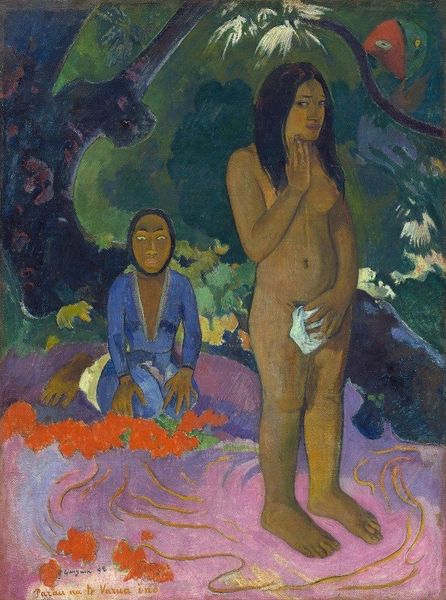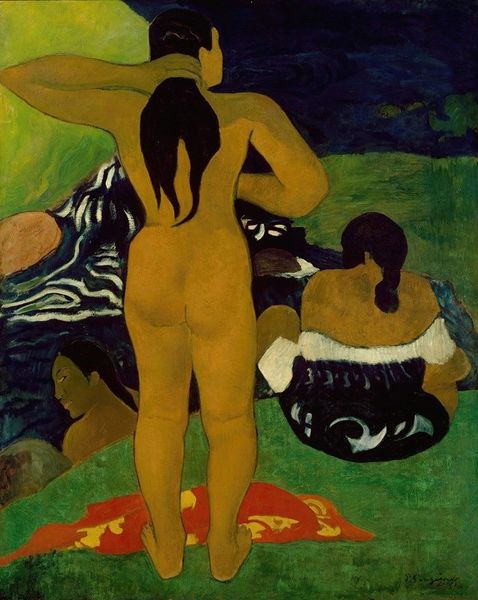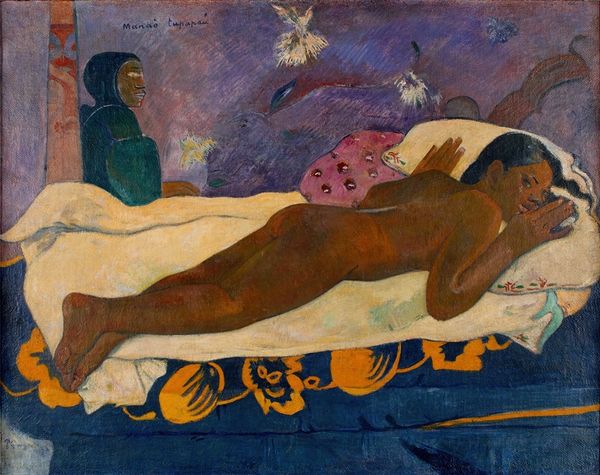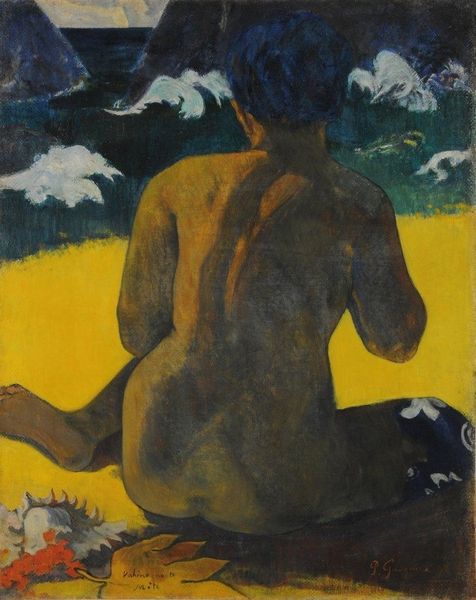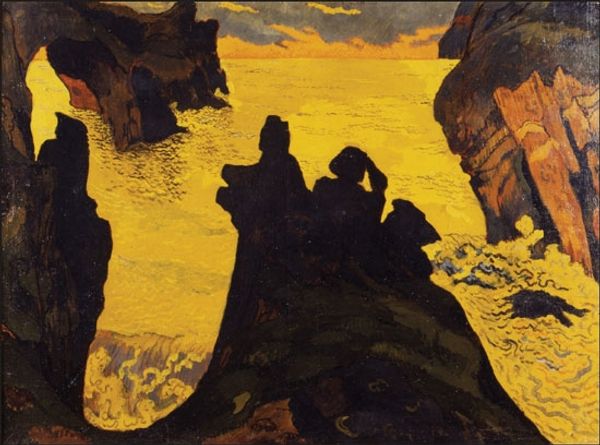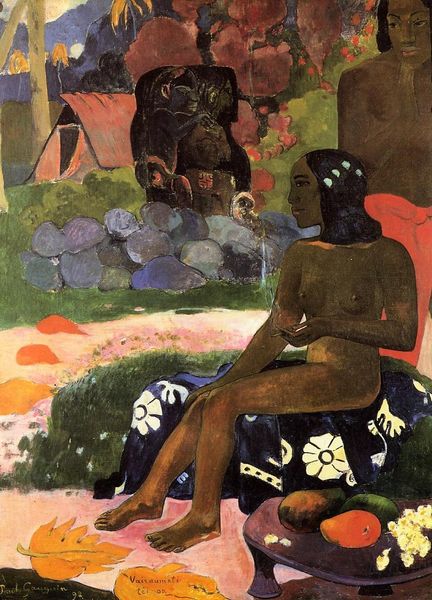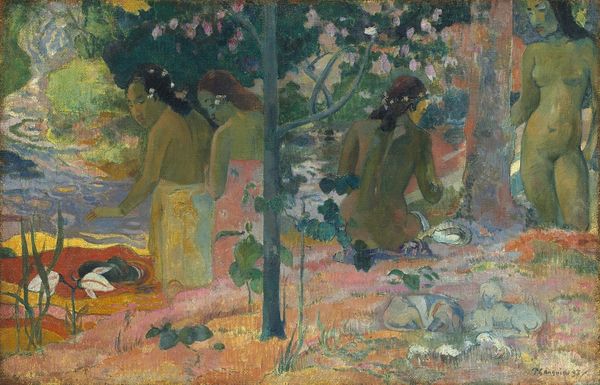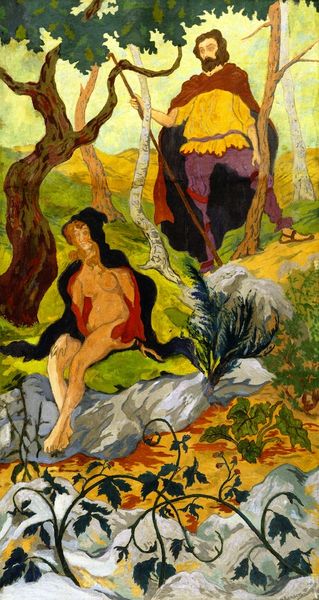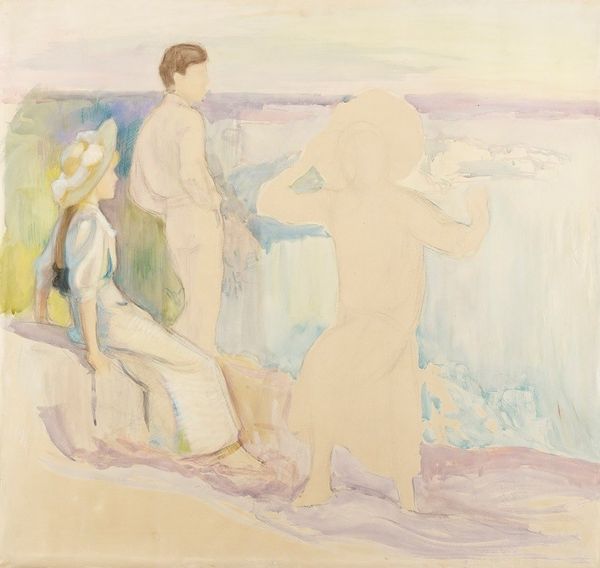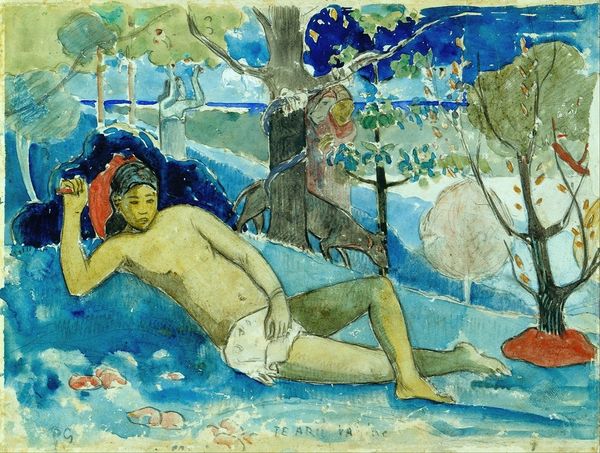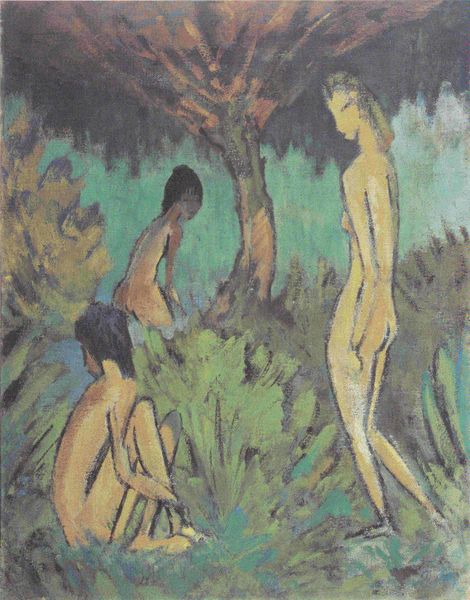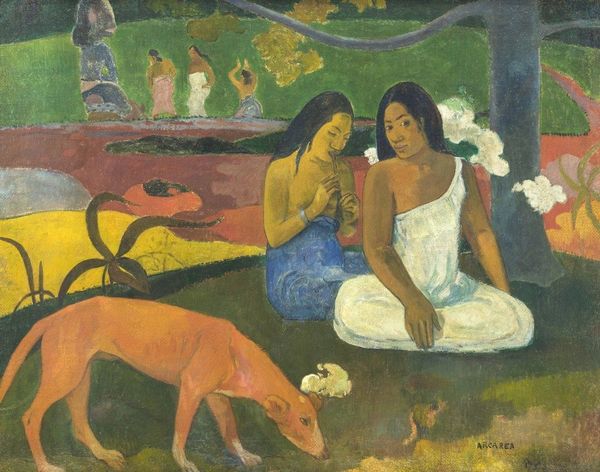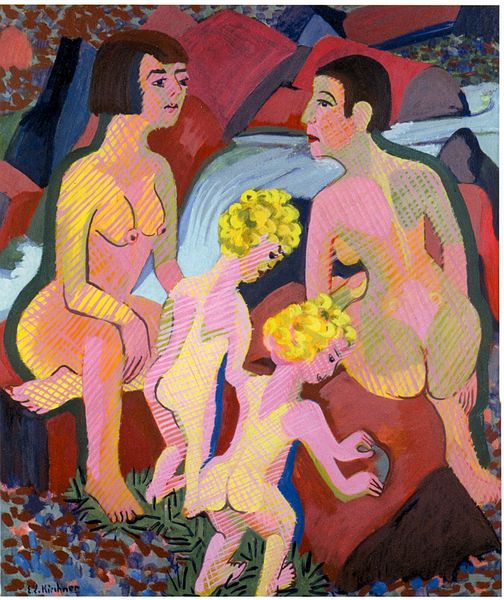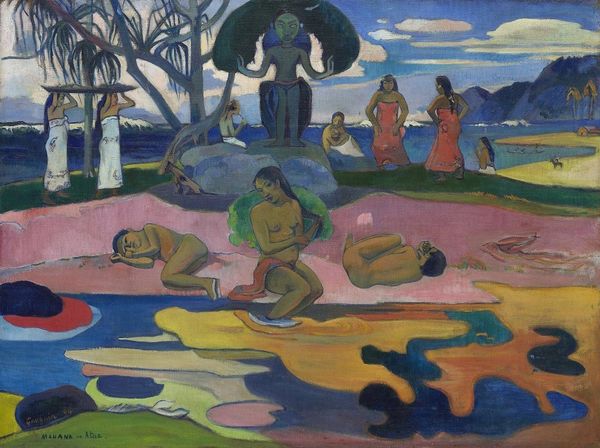
painting, oil-paint
#
painting
#
oil-paint
#
landscape
#
figuration
#
naive art
#
symbolism
#
painting art
#
post-impressionism
#
nude
Copyright: Public Domain: Artvee
Editor: This is Paul Gauguin’s "Fatata te Miti," painted in 1892. It depicts Tahitian women by the sea, rendered in vibrant, non-naturalistic colors. The overall effect is dreamy and somewhat unsettling. How do we unpack this piece in the context of its time? Curator: The "unsettling" feeling you describe is quite astute. We need to consider the power dynamics at play here. Gauguin, a European man, is depicting Tahitian women within a framework heavily influenced by colonialism and a Western gaze that exoticized and sexualized the "Other". Editor: So it's not just a pretty picture of paradise? Curator: Precisely. Think about the institutional framework through which Gauguin presented his work. These paintings were shown in galleries in Paris, reinforcing a narrative about Tahiti as a primitive, sensual escape for Westerners. Were these women given agency, or were they symbols used to convey Western anxieties and desires? Editor: That’s a disturbing thought. The vibrant colors almost mask the underlying issues. Curator: Indeed. The formal elements, like the flattened perspective and bold color choices, contribute to the painting’s visual appeal, which, in turn, facilitated its consumption within a European art market hungry for the exotic. Do you think it would have been perceived differently if Gauguin exhibited in Tahiti instead? Editor: Absolutely. The reception would be filtered through an entirely different socio-political lens, potentially challenging the narrative Gauguin constructed for his European audience. Perhaps the women themselves would become active interpreters, not just passive subjects. Curator: Exactly. Examining this work from a historical perspective makes us consider who has the power to represent whom and what agendas are at play in shaping cultural perceptions. Editor: I will never see this painting the same way again, thanks! Curator: Hopefully this conversation prompts reflection and critical dialogue about cultural exchange and the impact of colonialism.
Comments
No comments
Be the first to comment and join the conversation on the ultimate creative platform.
